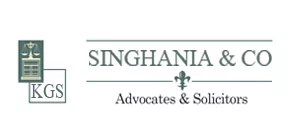The transformative winds of the 1990s, spearheaded by then Finance Minister Dr. Manmohan Singh's visionary reforms heralded the Indian software industry to unprecedented heights. Fuelled by a potent combination of exceptional human capital, robust infrastructure, and favourable governmental policies at both the Union and State levels, the Information Technology (IT) sector blossomed across the nation. Among the states of India, Maharashtra deserves a special mention. Maharashtra announced its first Information Technology Policy in 1998, which was followed by the Information Technology and Information Technology Enabled Services (IT/ITES) Policy-2003, IT/ITES Policy-2009 and the IT/ITES Policy 2015, all with a view to give a boost to the growth of the Information Technology sector and thereby generate employment and improve the quality of life of all relevant stakeholders in Maharashtra. Because of experiences gained from the implementation of earlier IT/ITES Policies and due to the rampant development in the field of IT/ITES, Maharashtra Government formulated a new policy to boost the industrial sector in the state – the IT/ITES Policy 2023 on June 27, 2023 (IT/ITES Policy 2023).
The introduction of the new IT/ITES Policy 2023 in Maharashtra was driven by the overarching goal of positioning the state as a global hub for IT & ITES industries and solidifying its status as India's technology capital. The policymakers aligned this policy with the vision of advancing towards innovative, equitable, inclusive, and sustainable technology development.
The mission outlined within this policy is to establish Maharashtra as the premier choice for investment and innovation among international IT & ITES enterprises and the leading state in the global technology landscape.
In this article, we will highlight the eligibility criteria for a company's office unit to be classified as an IT/ITES unit, the procedure and the fiscal benefits of obtaining an IT/ITES registration. We also aim at clarifying doubts regarding the meaning of 'Information Technology Enabled Services' and whether a company engaged in manufacturing and other services can be eligible for an IT/ITES registration.
Eligibility Criteria for IT/ITES registration
Before we understand the eligibility criteria, it is important to note that the IT/ITES registration is granted for an office unit of the company and not for the entire company as a whole. For any office unit to obtain the IT/ITES unit, it needs to fulfil two criteria: (i) the business activities of the office unit should fall under the definition of the terms "IT enabled Services" as provided under the IT/ITES Policy 2023; and (ii) 75% of the annual turnover of the office unit should be generated from these IT enabled Services.
Under the IT/ITES Policy 2023, IT industry consists of IT software and IT Enabled services, which are defined under Paragraph 15 of the IT/ITES Policy 2023 as follows:
"(i) IT Software:
IT Software is defined as any representation of instruction, data, sound, or image, including source code or object code, recorded in machine readable form and capable of being manipulated to providing interactivity to a user with the means of a computer.
(ii) IT enabled Services (ITES)
IT enabled services refer to companies that provide IT services or systems integration services, including those specified by the Central Board of Direct Taxes (CBDT) under section 10 TA of the Income Tax Rules and as decided by Government from time to time and are as below.
a) Back-office Operations: The administrative and support staff of a financial institute such as Banks, Insurance Company, Mutual Fund, Non-Banking Finance Companies which is responsible for function related to the running of the company such as Settlements, Compliance, Accounting, IT and Other Technology.
b) Financial Back Room operations for Corporate and Investment Bank (CIB) and Private Bank, Disaster Recovery, IT Development and Support and ancillary office, which includes Back Offices of Manufacturing and other service, Startups/Companies which have no direct customer interface but provide essential support through Electronic Media but this will not include delivery Godowns /Warehouse of E-Commerce Company/Organizations.
c) Call Centers or Contact Centre Services
d) Data Processing or data mining
e) Insurance Claim Processing
f) Legal Databases
g) Creation and maintenance of Medical Transcription Excluding advise
h) Payroll
i) Remote Maintenance
j) Revenue Accounting ( IT should include back office operations of all Income Tax Offices, GST offices back office operations or any other Government & semi – Government offices)
k) Support Centers
l) Website Services
m) Translation Services,
n) Data Search integration & analysis,
o) Content generation/creation using audio, video system and extensive use of computer which can be permitted for education.
p) Clinical database Management-Services Excluding Clinical trials but does not include any research and development services whether or not in the nature of contract research and development services.
q) Visa Processing facilitation & back offices of Travel & Tourism facilitation, T.V. Entertainment Channels and Sports & Travel Channels
r) Engineering & Designing
s) Geographic information System Services
t) Human Resource Services'
u) Super Specialty IT Skill Development Centers/ IT related Hi-Tech Training Centers
v) Co-Working Spaces / Plug and Play Infrastructure."
It is worthwhile to note that the erstwhile 2015 IT/ITES Policy did not expand on the meaning of "Back Office Operations", one of the activities falling under the definition of "IT enabled Services." A resolution dated 22nd February 2016 was issued by the Government of Maharashtra defining the same. However, the IT/ITES Policy 2023 has incorporated the definition of "Back Office Operations" within the Policy itself.
Procedure for obtaining IT/ITES Registration
The initial ITES registration is called as Letter of Intent (LOI) and the same is issued by the Director of Industries (DOI), Government of Maharashtra for a new office unit. To obtain the LOI, one must submit an application along with the requisite documents. Additionally, it is essential to maintain regular communication and follow up with the Department of Immigration (DOI).
However, before obtaining LOI, the first step is for the Company seeking the LOI to obtain an Industrial Entrepreneurs Memorandum (IEM) Part-A from the Department for Promotion of Industry and Internal Trade (DPIIT), online, via their G2B portal, in case the investment in plant and machinery of the industrial undertaking is INR 50 Crores and above or if the industrial undertaking has a turnover of INR 250 crores or above. This can be done by filling in the necessary information and uploading the relevant documents on the G2B portal. In case the investment in the plant and machinery of the industrial undertaking or its annual turnover is less than the thresholds mentioned above, the first step would be to obtain Udyog Aadhaar Memorandum from the Government of India, Ministry of Micro, Small and Medium Enterprises.
Industrial undertakings or units that have filed IEM Part A are obligated to report the commencement of commercial production online via the G2B portal. This report must be filed using the prescribed form in 'Part-B' of the IEM after the commencement of commercial production. Additionally, a copy of the IEM Part A acknowledgment must be attached when submitting this information on the portal. The DPIIT also issues acknowledgments for Part B in a similar manner as it does for Part A, through its portal.
Once the IEM Part-B is received, an application together with the prescribed documents has to be made to DOI for obtaining ITES registration. The ITES registration is valid for a period of 3 years and needs to be renewed thereafter for which a separate renewal application has to be made.
Financial Benefits offered to the IT/ITES units
One of the major benefits to IT/ITES units is that they can take offices premises in an IT Park, which have much lower rental charges as compared to other commercial premises. Some of the other fiscal benefits provided under the IT/ITES Policy 2023 include:
- Stamp Duty Exemption: The stamp duty exemption in Maharashtra is subject to certain conditions and eligibility criteria:
- Entities previously availing stamp duty exemption will not be eligible if shifting locations unless they make a minimum 25% additional fixed capital investment in IT & ITES activities.
- Various categories of units are eligible for different levels of stamp duty exemption based on their location and type of transaction.
- For example, new units in Public/Private IT Parks and expansions outside Zone-I are eligible for 100% exemption, while those in Zone-I may get 75% or 50% exemption based on whether they are in Public or Private IT Parks.
- Units in SEZs, STPI registered units, and units involved in merger, demerger, and reconstruction of registered IT/ITES units can avail 100% or 75% exemption respectively.
- Power Rationalization Benefit: Cost reimbursement is provided for retrofitting studies and implementing energy-efficient equipment.
- Electricity Duty Exemption: Various exemptions from payment of electricity duty are available for different types of IT & ITES units, based on location and registration status.
- Certification Assistance: Reimbursement of certification costs for micro and small-scale IT units.
- Market Development Assistance: Reimbursement of exhibition participation fees for approved exhibitions.
- Patent-related Assistance: Reimbursement of costs for patent registration.
- Power Tariff: IT & ITES units will be supplied power at industrial rates applicable under Maharashtra Electricity Regulatory Commission's (MERC) tariff orders.
- Property Tax: Levied at residential rates for IT/ITES units.
Conclusion
The IT/ITES Policy 2023 not only boosts the momentum for established players in the IT industry but also creates an opportunity for new entrants, positioning Maharashtra to become India's technology capital. To access the benefits outlined in this policy, current IT parks must meet the requirements set forth under the said policy.
Before an office unit decides to obtain an IT/ITES registration it is important for the office unit to make a list of activities that may fall under the definition of "IT/ITES" under the IT/ITES Policy 2023 and check the percentage of revenue that is generated from those activities. It is also important to keep in mind that even if a Company as a whole may be in manufacturing or other services, its office unit may be eligible for ITES registration in case it fulfils the criteria laid down under the IT/ITES Policy 2023.
The content of this article is intended to provide a general guide to the subject matter. Specialist advice should be sought about your specific circumstances.




